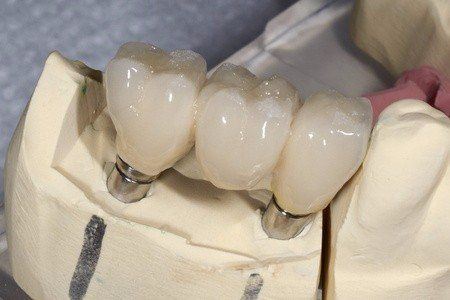What are ‘Mini’ Dental Implants?
In the past, missing a good number of teeth meant wearing
dentures or paying a lot of money for dental implants. However, a new method exists
today for replacing missing teeth that is both comfortable and affordable, especially
for older patients.
Mini dental implants, at half the size of standard implants, are less costly and far more comfortable to put in place, making them a worthy endeavor for patients to pursue. With that in mind, understanding these implants’ benefits can help patients make a more informed decision regarding what’s best for their long-term oral health.
Lower Costs
Back in the day, the least expensive option for replacing many missing teeth was a set of dentures, which come with challenges all their own—cleaning, adhesive, and the impending risk of them coming loose. Regular dental implants, where implants are placed into and then attached to the jawbone before a prosthetic crown is eventually added, were the longer-term but very expensive alternative.
Mini dental implants, however, require a quicker procedure and less hardware, leading to around half the cost of traditional implants. One analysis even found the average cost of mini implants ranges, depending on how many, from $2,000 to $5,000 – a third of the cost of standard implants. Even more, for patients currently wearing dentures, they could be retro-fitted for mini implants and save more on costs.
Minimally Invasive
When it comes to dental appliances, dentures have certain drawbacks, such as being worn every day, but they have to be taken out and cleaned every night in order to look natural and fresh. Dentures are also applied with adhesive, which isn’t the best seal and can lead to a lack of stability and comfort. Many wearers also say they can’t eat crunchy or hard foods out of fear their dentures will detach.
Contrasting, standard implants are secured to the jawbone permanently but after a complex procedure where flaps are cut in the gum line to attach the implant screw to the jawbone. As well, surgery might need to be done in stages, require significant recovery time, and call for paying a premium to the oral surgeon.
On the other hand, mini implants meet patients’ needs somewhere around the middle, with the smaller size calling for smaller holes in the jaw. The outcome is permanent, just as with standard implants, and the patient’s discomfort and recovery are both minimal, allowing them to resume their usual oral health care routine soon after the implants are placed.
Before making a decision, patients should speak with their oral surgeon first regarding their needs and the solution that works best for them. The dentist can also help patients decide if mini dental implants are the right solution for their oral health.
If you are putting off dental treatments such as this due to
the high cost of dental care, you need our New Hampshire discount dental plan
for seniors
, individuals, families, and business owners. If you want to find
out how you can save 20 percent off these bills, click here.
Copyright: fedecima
/ 123RF Stock Photo











